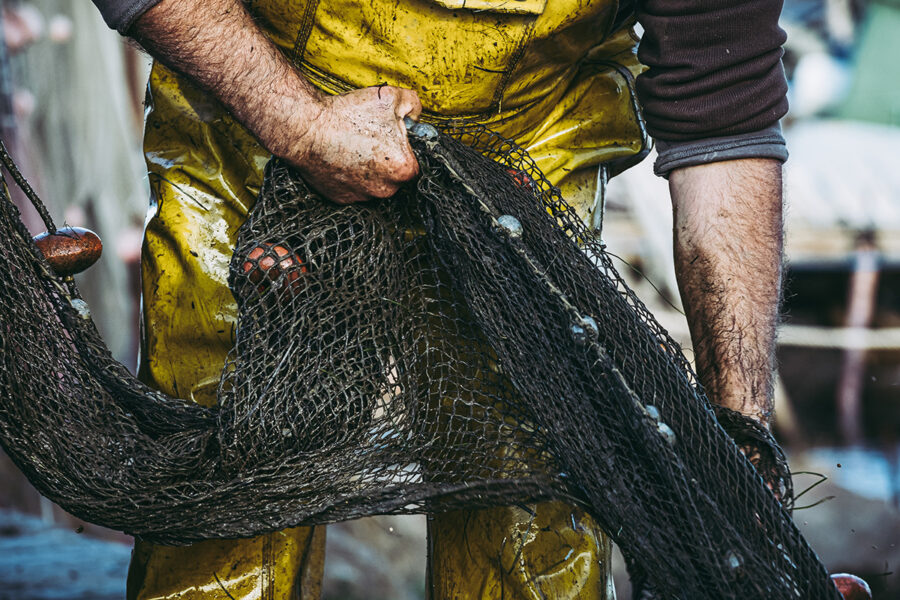Northern Ireland industry leader Harry Wick has claimed that over-zealous interpretation of visa regulations risks are causing hardship to all parts of the fishing sector, reports Andy Read.
A new move by the Northern Ireland FPO and the Scottish White Fish Producers’ Association to recruit fishing crew from Beliz

Harry Wick: “The consequences of getting this wrong are terrifying.”e, through the skilled worker route, is a direct reflection of concerns about an impending clampdown on foreign fishermen employed through the use of transit visas, says the chief executive of NIFPO, which is also a member of the Fishermen’s Welfare Alliance.
This follows a recent meeting with officials from Border Force, looking in particular at fishing vessels that operate at times within 12 miles. The transit visa option is only available to vessels working beyond the 12-mile limit.
Harry Wick confirmed that NIFPO has offered to pay 50% of the salary of the first four Belize fishermen recruited, and support them through the application process for visas via the skilled worker route.
“We have chosen Belize as it is a country with a large number of skilled, experienced fishermen. It is classified as a majority English-speaking country, which means there are no issues with written English exams as part of the skilled worker application process,” he told FN.
“There are a host of other issues we need to address going down this route. For example, Belize doesn’t issue the biometric passports required under the skilled worker scheme – but we feel none of these problems are insurmountable, and we have to try and look at every option available to us to stave off an impending crewing crisis in the fleet.”
Up to 70 vessels in the Northern Irish fleet are thought to be working with between one and seven foreign crewman onboard – with many crews well established and returning to the same vessels year after year. The vast majority of the crew are working via the much-criticised transit visa scheme.
“There are problems with transferring to the skilled worker visa for many of our existing crew”, Harry Wick told FN. “Even though we have had crew working on the same vessels for as long as a decade, and their spoken English is impeccable, their written English isn’t to the same standard, because the majority of those crew won’t have had formal schooling in English.
“Whilst we are looking at helping them with evening and weekend classes, a long-term fix will take considerable investment from the industry, without any guarantee of results.
“The minimum time to become a sponsor for skilled workers is eight weeks, plus the additional time needed for sourcing a crewman and providing mandatory training. This means that many of the Northern Ireland and wider UK fleet will find it impossible to meet the November deadline, after which Border Force intends to begin enforcement operations.
“Many longstanding crew are genuinely concerned about their ability to continue fishing with us. They are well aware of the poorer conditions available to them on foreign fishing vessels, with some having experienced horrific conditions first-hand.
“However, if we do get to a situation where we see them being denied berths in the Northern Ireland fleet through an overly harsh interpretation of the transit visa rules, they may well face a choice between working on Russian trawlers or returning to their home countries, where employment prospects are grim.
“The majority of our foreign crew are settled and happy, with positive experiences that are in stark contrast to some of the horror stories that we have seen raised by some commentators outside the industry. Whilst I won’t comment on those claims other than to say that the whole of our industry utterly condemns any mistreatment of crew, we hope that we can see a realistic, managed and safe transition to skilled worker visas.
“This, however, requires the authorities to acknowledge the need for an achievable timetable that takes into account the lengthy process required to get to formal approval, and the safety concerns about taking a vessel to sea when none of the crew have worked on that vessel before.
“We have commissioned independent economic analysis showing that the cost to the economy of losing these transit visa workers is over 600 jobs and up to £110m in the West of Scotland and Northern Ireland alone. To wilfully collapse our fishing industry in communities that entirely depend upon it, and to thrust social deprivation on the families of all of those who depend on our fishermen, is a staggering and unjustifiable act of self-harm.
“When food inflation is running at over 10%, why does the government think it is a good idea to kick out fishermen who actually are supplying the UK market with food? Surely Defra must use all its influence to help the Home Office see what is in the best interests of the UK’s people.
“The skilled worker visa isn’t the ready-made, simple solution the Home Office seems to think. Given enough effort and patience, we can of course successfully adopt it, but it will take time. Our plea to government is simply, please, give us that time.
“The alternative is a deliberate ‘levelling down’ of the fishing economy, forcing those 600 families to cope with job losses, dealing with the heartbreak of sending away foreign crew, who on many boats are treated as part of the family, while knowing they may well end up in genuine modern slavery.
“Fishing vessels need to be given the same time and patience that has already been given to workers on wind farms and well boats. There is an opportunity here and now for the new government to rebuild some of the trust and confidence destroyed by the old.
“Our message to that new government is to meet with industry representatives. The consequences of getting this wrong are terrifying. Please do not let those consequences be this government’s first exchange with the industry.
“We can, in partnership, work our way through this crisis, but only if the Home Office is prepared to come to the table and demonstrate at least an ounce of the flexibility we are prepared to show them.”
This story was taken from the latest issue of Fishing News. For more up-to-date and in-depth reports on the UK and Irish commercial fishing sector, subscribe to Fishing News here or buy the latest single issue for just £3.30 here.








